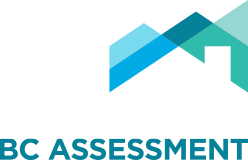Information for Out-of-Province property owners:
Do you own property in British Columbia, but you are not a resident of British Columbia?
All owners of property in British Columbia are treated equally by the provincial assessment system, regardless of whether they are permanent residents of the province. There is no in-province residency requirement to own property within British Columbia nor is there any limit on the number of properties a non-resident can own.
Frequently asked questions from Out-of-Province property owners:
I understand the property assessment system where I permanently reside, but what is the system used to assess properties in British Columbia?
BC Assessment estimates the value of most properties annually (e.g. homes) based on market value. This market value is determined by examining sales of similar properties within your property’s neighbourhood, municipality, or region. BC Assessment will assess properties reflecting their physical condition and permitted use as of
October 31 using a valuation date of
July 1. Final assessment notices are mailed out to all property owners on December 31 each year. This means that the value indicated on your most recent assessment notice is based on the market value as of six months prior to receiving your assessment notice.
In determining assessed value, a BC Assessment appraiser considers a wide variety of factors such as size, age, shape, quality, condition and location of properties. Services in the area (location, views, neighbourhood) and supply and demand may also influence property value. Changes such as new construction or inventory, permitted use (e.g., zoning), property class, occupation, eligibility for an exemption or in the taxing jurisdiction boundary will be reflected on the assessment roll.
How do British Columbia property assessments relate to property taxes?
BC Assessment does not have a direct role in setting property taxes. In British Columbia, the property assessment system and property taxation system are independent of each other. Taxing authorities (municipalities, regional districts) set their tax rates for property taxes based on their budget requirements.
It is important to note that an assessment increase in British Columbia does not necessarily mean your property taxes will increase. Properties with assessment increases above the average within their taxing authority (e.g. municipality) may notice a proportionally higher percent change in property taxes. Those with increases below the average may see a lower than average change.
Inquiries about property taxes should be directed to the municipality or taxing authority in which your property is located.
I prefer to have my British Columbia property assessment mailed to my permanent residence outside of British Columbia. Is this possible?
Yes, BC Assessment will send your annual property assessment notice to any address that you provide as your mailing address.
If I have a question or concern about my property assessment, how can I contact BC Assessment from outside British Columbia?
For anywhere within North America, you can contact BC Assessment toll-free at the 1-866-valueBC (1-866-825-8322) number listed on your Assessment Notice in order to discuss your property assessment with one of our appraisers. Outside North America, you should contact the regular telephone number listed on your Assessment Notice for which long distance charges would apply. BC Assessment office hours are normally from 8:30 am to 4:30 pm, Pacific Standard Time, Monday to Friday. Click
here for more information.
If I want to appeal my assessment but I live outside British Columbia, do I have to attend the Property Assessment Review Panel (PARP) hearing in person?
Property assessment appeals are referred to as "Notices of Complaint" or "requests for review" in British Columbia. All property owners have the right to file a Notice of Complaint by a deadline of January 31 of that year’s Assessment Notice. Your submission can be verbally in person, or submitted in writing, or you may appoint someone as an agent to appear on your behalf. In select Regions, Conference Call hearings may be available.
You will be notified in advance of a date and place for your hearing at a regional location near to where your property is located. This notification will be sent to you by mail to the mailing address provided in your Notice of Complaint. No hearings will be located outside of British Columbia.
More information about the British Columbia appeal process is available
here.
Updated 05/2014
Disclaimer: Where information presented is different from legislation, legislation shall prevail.

